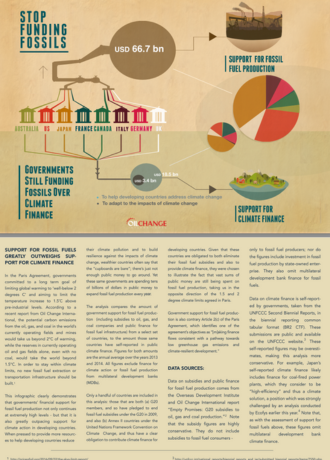
Financing Climate Disaster: How Export Credit Agencies Are a Boon for Oil and Gas
The U.S. Export-Import Bank (USEXIM) is the third-largest supporter of fossil fuels among all G20 countries, according to a new report out today from Oil Change International, Friends of the Earth U.S., and WWF's European Policy Office.









